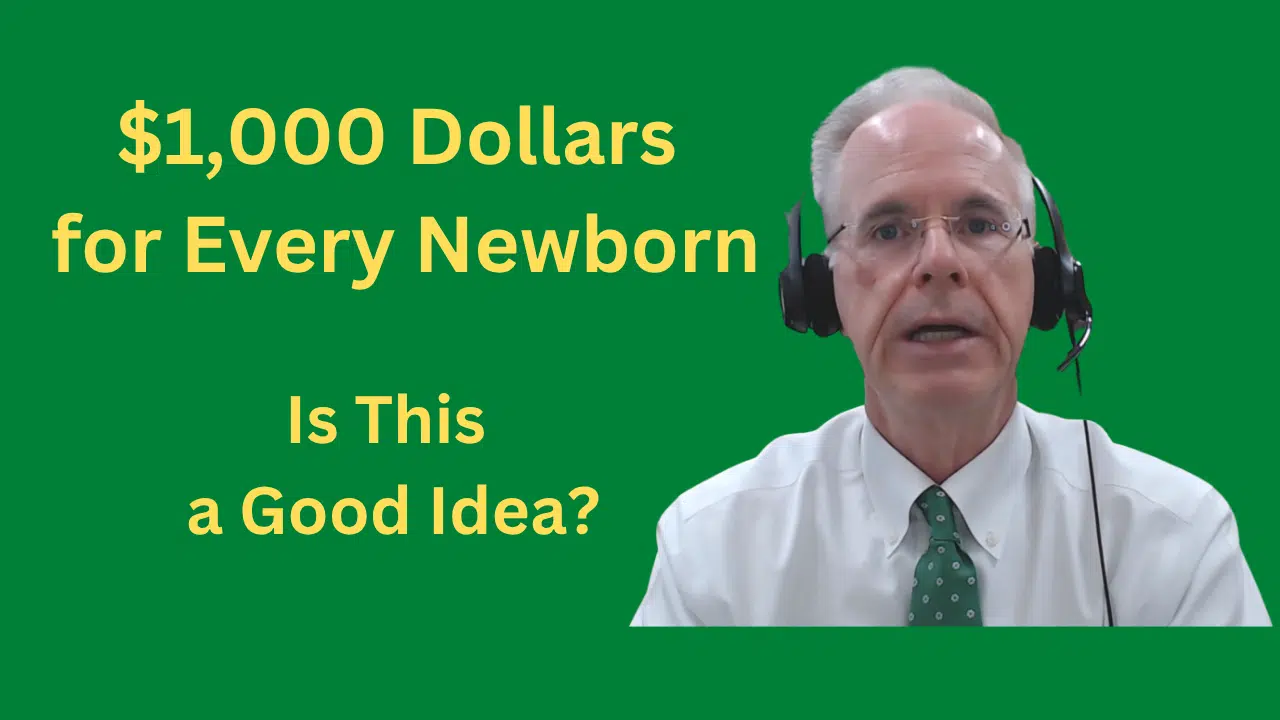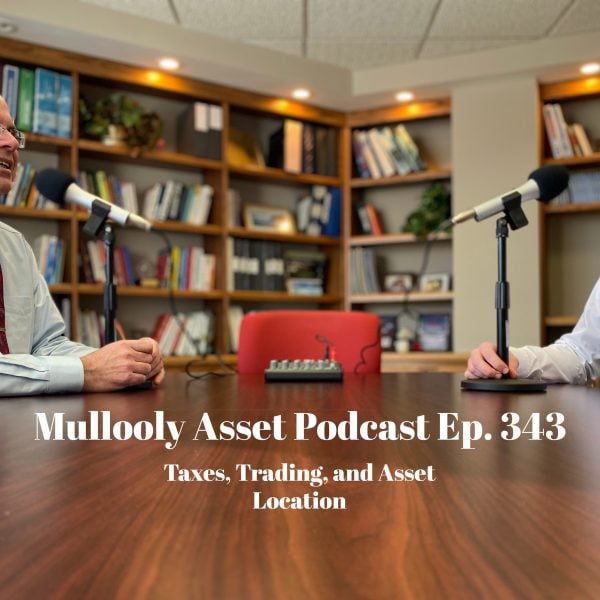One Thousand Dollars for Every Newborn
Key takeaways:
The proposed government-funded one thousand dollars for every newborn account raises concerns about long-term impact, parental control, and financial responsibility.
529 plans may be a more established and flexible option for saving for a child’s future, especially education.
Giving money doesn’t teach saving habits—financial discipline and behavior matter more than one-time incentives.
Temporary government programs often become permanent, due to political challenges in repealing them.
One Thousand Dollars for Every Newborn – Links
Catch all our Mullooly Asset videos here
Subscribe to the Mullooly Asset YouTube Channel
Watch this episode (“One Thousand Dollars for Every Newborn”) on our YouTube Channel
One Thousand Dollars for Every Newborn – Transcript
Part of the proposed “big beautiful bill,” is a plan where the US government would give one thousand dollars for every newborn born between 2025 and 2028.
The federal government would create an account. (There’s) not a lot of details around this. But they would create an account and they would drop one thousand dollars for every newborn into an index fund for the benefit of this little child, who was born at some point in the next few years.
And the plan also allows the guardians, in most cases, that’s the parents, to add up to $5,000 per year.
All sounds very nice. It’s a nice thing to do. The account would be controlled by the guardians. In most cases, the parents.
That could be a problem because you could… I could see… a situation where five or six years down the road, the parents call up and say, “hey, we could really use that money. How do we get it?”
When the child, the beneficiary of the account, turns 18, the money is distributed. It can be distributed to them, which kind of creates another set of circumstances.
They’re free to use that money as any 18-year-old would want to.
Yikes.
Besides all of that, there’s already something that exists that is, in a lot of ways, better than what’s being proposed.
It’s called a 529 account.
Now, when they first were introduced, 529 plans were pretty restrictive. In fact, there were many situations, and I’m going back 15 years ago, 20 years ago, where we didn’t even suggest it to some clients.
Things have changed over time. And these plans have gotten better and better.
And so 529 plans are really worth a look.
The Trump plan is for every child, every citizen, that’s born between 2025 and 2028.
Like a lot of programs, it starts out as temporary.
Tax incentives start out as temporary.
Tax credits…
Even tax brackets are usually proposed in a budget bill as temporary.
And they come with what’s called a “sunset provision.”
The reason why they have a sunset provision is because (so that) it doesn’t become part of the longer budget deficit.
And so, it’s easier to get it through Congress.
But again, it starts out as temporary. You know, these thousand dollar accounts, (they are) only going to last for the next three or four years. But then at some point, Congress has to vote on essentially ending a tax break or a giveaway.
And that almost never happens.
When I first heard about this idea – to give newborns a thousand dollars, it made me, it reminded me of a story I read.
It’s a book called “The Power Broker.” It’s written by Robert Caro.
It’s the story of Robert Moses and how this unelected official was able to ram through all of these projects 70, 80, 90 years ago in the New York City area – to build roads and bridges. He built a Triborough Bridge, for goodness sakes.
He built a lot of roads that you travel on.
The whole idea, the concept behind all of his projects was: “we have to alleviate the traffic, we have to reduce the congestion that we have in the area.”
And so the way to do that (Moses believed) is to build more roads and more bridges.
And after years and years of doing this, the end result, what everybody found out, was they just had more traffic, more congestion, more problems.
And so I don’t know if giving newborns a thousand dollars is really going to solve anything.
Because saving, like investing, (becomes) it’s a habit.
It has to come from within.
If you give someone a thousand dollars, you really haven’t taught them how to save money.
Or how to invest the money. It could help.
One other point I’ll add, and I’ve mentioned this on other videos as well, is most of Warren Buffett’s gains in his wealth have come beyond the age of 65. He’s just given his investments a long enough time to compound.
When you’re starting out, those first five years, those first 10 years, those first 20 years — most of your returns are going to be based on how much money you’re saving. Not necessarily the investment returns.
Saving money is a habit.
If you give someone free money, you may not get the intended result.
What are your thoughts?
Leave a comment below.








